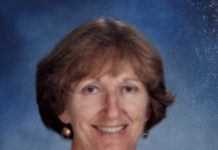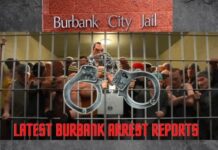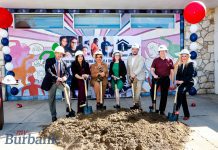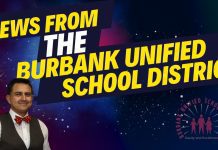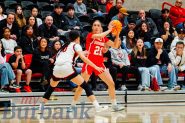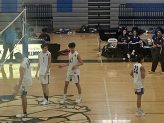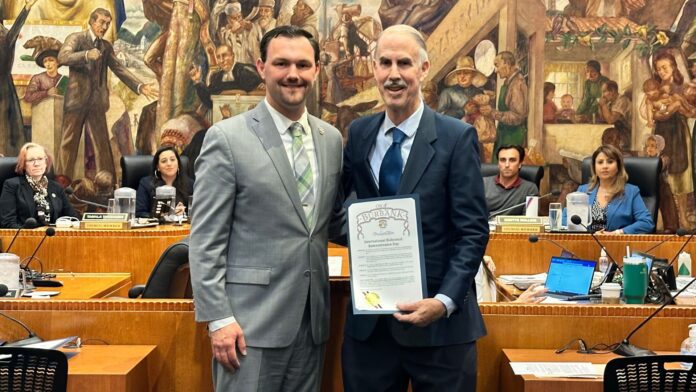
In a somber reflection of history’s darkest hours, the City of Burbank honored the memories of the Jewish lives extinguished in the Holocaust, while paying tribute to those who endured and survived the atrocity.
Mayor Nick Schultz proclaimed January 27 as International Holocaust Remembrance Day, which also signifies the day of liberation for Auschwitz-Birkenau, the notorious concentration and extermination camp, in 1945.
The grim remembrance serves as a stark reminder of the six million Jewish men, women, and children whose lives were claimed by systematic murders during the Holocaust, and the millions more who suffered under the Nazi regime’s brutal enforcement of antisemitism and genocide.
“The City of Burbank should always remember the terrible events of the Holocaust and remain vigilant against hatred, persecution, and tyranny,” said Mayor Nick Schultz at Burbank’s city council meeting on January 30. “We must actively reaffirm the principles of individual freedom in a just society.”
Accepting the proclamation was Burbank resident David Meyerhof, whose parents and grandparents escaped from Germany and survived the Holocaust. A retired math and science teacher in the Los Angeles Unified School District, Meyerhof has been coordinating Holocaust Survivor Speaker programs for the Burbank, Glendale and Los Angeles school districts for eight years, ensuring that students in grades 5-12 learn about the Holocaust directly from survivors.
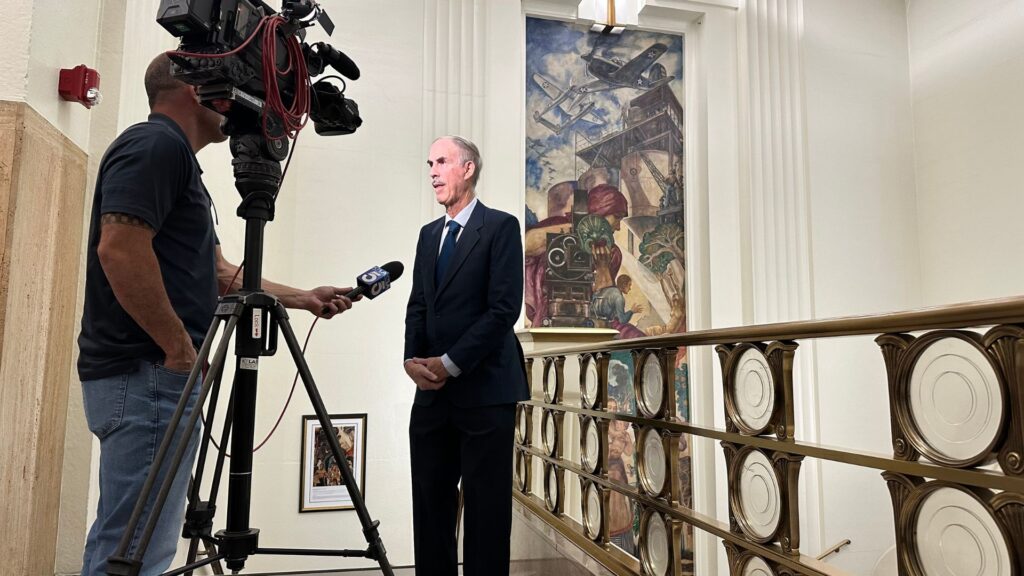
Meyerhof emphasized the importance of Holocaust education, describing it as a vital history lesson on the consequences of hatred dominating a nation. “These speakers lived through it and they have a powerful message that all people deserve respect, no matter what color eyes or skin they have,” he said. Meyerhof finds great satisfaction in the transformative impact these interactions have on students. He noted that many students have shared how their conversations with the survivors have profoundly altered their perspectives and life views.
Burbank Unified School District was the first school district in U.S. to have Holocaust speakers, according to Meyerhof. This program, initiated by Sylvia Sutton from Temple Beth Emet in Burbank, was designed with a specific goal: to ensure that every student heard directly from a Holocaust survivor.
Vice Mayor Nikki Perez expressed her appreciation for the efforts to honor and acknowledge the Holocaust and its survivors in the city. “I’m thankful for the opportunity we’ve had to welcome a speaker from the program,” she said. Recalling her own experience as a BUSD student, Perez noted the profound impact these speakers had on her and her peers. Hearing directly from a survivor is “very impactful and it motivates our young people to learn more…so that history does not repeat itself,” she said.
California is one of just 26 states that have any kind of Holocaust education in the schools, Meyerhof said. According to a national survey released by the Claims Conference, 49% of millennials surveyed could not name one of the 40,000 ghettos or camps where Jews were slaughtered. And 22% of those did not know about the Holocaust at all.
Meyerhof’s commitment to education is deeply influenced by findings such as these. He believes that students are most profoundly impacted by firsthand accounts from Holocaust survivors. However, the opportunity for such direct interactions is dwindling with time.
Initially, Meyerhof coordinated the Holocaust Survivor Speaker program with a roster of 25 survivors. Over the years, as time has taken its toll, the number has significantly diminished. Now, only eight survivors remain in the program, a stark reminder of the urgency to preserve their stories.
In his address, Meyerhof presented a powerful video interview featuring Joseph Alexander, a centenarian who endured the horrors of 12 concentration camps. The atmosphere in the Burbank City Council chamber was one of profound silence, punctuated only by Alexander’s vivid descriptions. The audience was captivated by the haunting images of the boxcars used to transport Jews to concentration camps, as Alexander recounted his experiences within them.
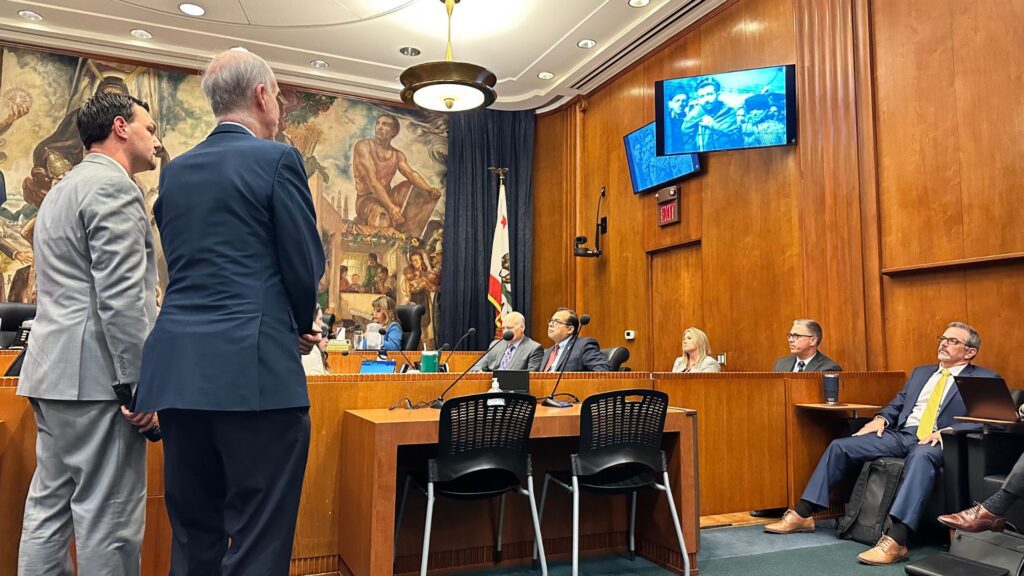
“It’s important for people to see the boxcars, to understand that 30 to 40 people were jammed in each one, for days without food or water,” Alexander said. “I saw people beaten to death, being electrocuted. But I never gave up. I never stopped believing in God. Today may be a bad day but I hope tomorrow will be a better day.”
“We know how [these atrocities] started—they started slowly but kept going on and on. We have to stop this from the beginning by educating young people to prevent another holocaust,” Alexander continued.
“This country is on the edge of either continuing as democracy or continuing as dictatorship,” Meyerhof said. He noted that even if young people cannot vote, they can still use their voices to prevent racism, bigotry and anti-Semitism.
Meyerhof also shared the story of his grandfather, Otto Meyerhof, a distinguished scientist who won the Nobel Prize in Physiology or Medicine in 1922 alongside A.V. Hill for their research on muscle contraction. Despite this remarkable achievement, Otto Meyerhof was not immune to the rising tide of anti-Semitism in Germany. He and his family were forced to leave for Paris in 1938 as the situation for Jews worsened. However, the Nazi invasion of France in 1940 compelled him to flee once more, ultimately finding refuge in the United States. There, he continued his academic pursuits as a professor at the University of Pennsylvania. (Watch a video of Meyerhof’s father, Walter, discussing Otto Meyerhof’s dramatic escape from Vichy France with Varian Fry, an American journalist who ran a rescue network.)
“We need to make sure we remember what happened and talk about it with clear eyes and a clear understanding of history,” said Councilmember Konstantine Anthony.
For individuals seeking a deeper understanding of the Holocaust, two key resources in Los Angeles offer invaluable insights: the Holocaust Museum Los Angeles and the Museum of Tolerance. Both institutions provide a wealth of information and exhibits that delve into the historical events of the Holocaust, offering visitors a poignant and educational experience. These museums not only chronicle the tragic events and stories of survivors but also serve as powerful reminders of the importance of tolerance and the dangers of unchecked hatred in society.











